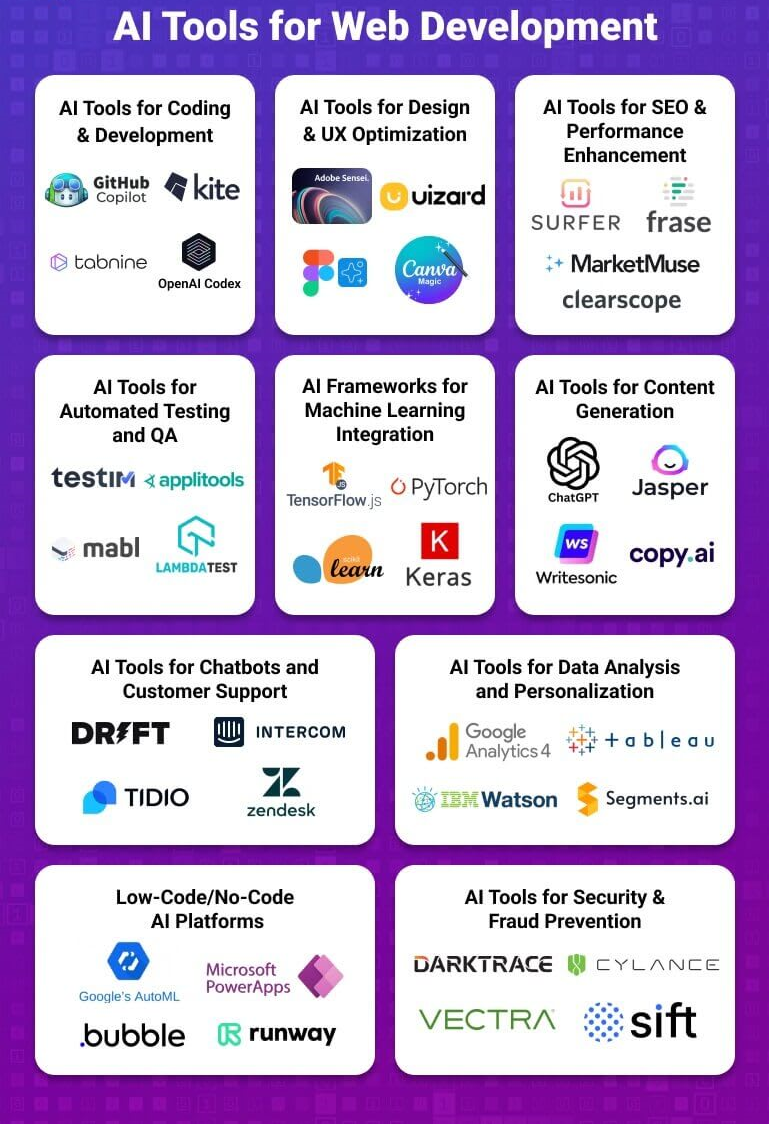Why AI in Web Development Matters Now
The integration of AI into web development addresses a critical pain point: developer productivity. AI automates repetitive tasks like coding, debugging, and testing, allowing developers to focus on creative problem-solving and strategic implementation. 67% of businesses plan to increase AI investments in the next three years, signaling that this isn't a trend—it's a fundamental shift in how software gets built.

Key AI Tools Transforming Web Development
Code Generation and Development Assistants
GitHub Copilot stands at the forefront of AI-assisted development, generating code snippets and complete functions from natural language descriptions. Tools like OpenAI Codex, Claude Code, and Tabnine follow suit, reducing coding time significantly and helping developers focus on complex problem-solving rather than boilerplate code.
Design and UX Automation
AI design platforms like Uizard and Adobe Sensei automate layout adjustments, suggest design elements, and optimize images. These tools enable developers to create visually stunning interfaces without needing specialized design expertise. Real-time personalization is now possible—websites adapt layouts, content tone, and features to individual users automatically.
Automated Testing and Quality Assurance
AI-powered testing tools like Testim and Applitools identify bugs and visual inconsistencies faster than manual testing. This acceleration in QA processes reduces deployment time and improves overall website reliability.
Predictive Analytics for User Behavior
In 2025, AI enhances predictive analysis using real-time and IoT data to forecast user actions. E-commerce platforms optimize personalized product recommendations, while content platforms curate material dynamically to improve engagement and retention.
The Business Impact
The numbers speak for themselves. AI development tools are delivering a projected 25.2% compound annual growth rate (CAGR) in AI adoption through 2030. Businesses experience tangible advantages across multiple dimensions:
- Speed: Reduced development time through automation
- Scale: Handle more projects with existing teams
- Personalization: Deliver hyper-personalized user experiences
- Security: Enhanced threat detection and prevention
- Cost Reduction: Lower labor costs through workflow optimization

AI in web development isn't about replacing developers—it's about amplifying their capabilities. By automating repetitive work, AI frees developers to tackle more complex challenges, innovate faster, and deliver better user experiences. The question isn't whether to adopt AI tools; it's how quickly you can integrate them into your workflow to stay ahead in 2025 and beyond.